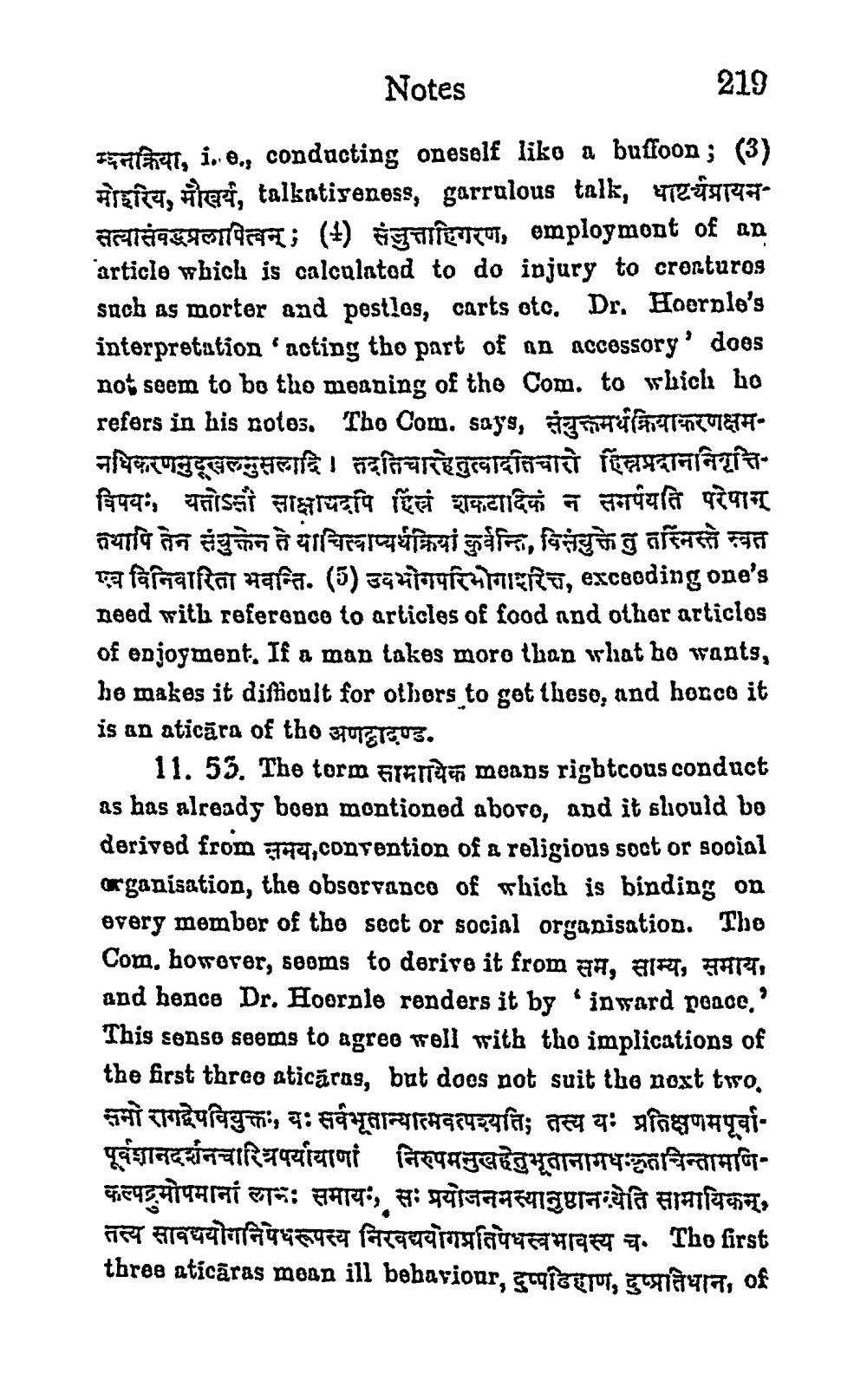________________
Notes
219
मनक्रिया, i.. e., conducting oneself liko n buffoon ; (3) मोहरिय, मौखर्य, talkntiseness, garralous talk, धार्थप्रायनसत्यासंबद्धप्रलपित्वन्(4) संजुत्ताहिगरण, employmont of an article which is calculated to do injury to cronturos such as morter and pestles, carts otc. Dr. Hoernle's interpretation 'acting tho part of an accessory' does not seem to bo tho meaning of the Com. to which bo refers in his notes. Tho Com. says, संयुक्तमर्थक्रियाकरणक्षमनधिकरणनुदूखल मुसलादि । तदतिचारहेतुत्वादतिचारो हिनप्रदाननिगृत्ति विषयः, यतोऽसौ साक्षापदपि हिंस्र शकटादिकं न समर्पयति परेपाम् तथापि तेन तंयुक्तेन तेयाचित्लाप्यर्थक्रियां कुर्वन्ति, विसंबुजे तु तम्निस्ते स्वत एव विनिवारिता भवन्ति. (5) उपभोगपरिभोगासरित, exceeding one's need with reference to articles of food and other articlos of enjoyment. If a man takes moro than what ho wants, he makes it difficult for others to get theso, and horco it is an aticara of the अणहादण्ड.
11.55. The term सामायिक means rigbtcous conduct as has already boer montioned aboro, and it should be derived from 779,convention of a religious soct or social organisation, the obsorvance of which is binding on overy member of the sect or social organisation. Tho Com. horrorer, seems to derire it from सम, साम्य, समाय, and hence Dr. Hoernle renders it by inward peace.' This sonse seems to agree tell with the implications of the first thrco aticāras, but does not suit the post two. समोराग पवियुक्तः, यः सर्वभूतान्यात्मवत्पश्यति; तस्य यः प्रतिक्षणमपूर्वापूर्वशानदर्शनचारियपर्यायाणां निरुपमनुखहेतुभूतानामधाकृतचिन्तामणिकल्पद्रुमोपमानां लानः समायः, सा प्रयोजनमत्यानुष्ठानस्येति सामायिकन, तत्य सावधयोगनिषेधरूपस्य निरवद्ययोगप्रतिपधस्वभावस्य च. Tho first three aticaras mean ill behaviour, दुप्पडिहाण, दुष्प्रतिधान, of




